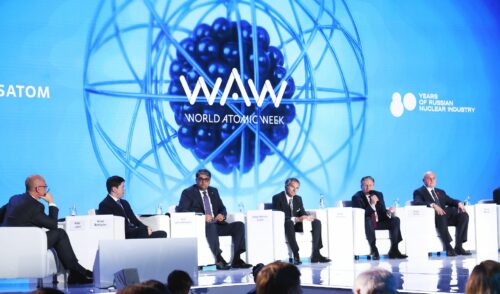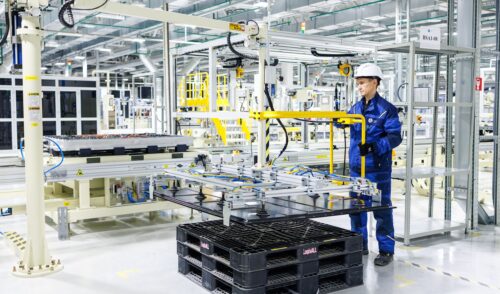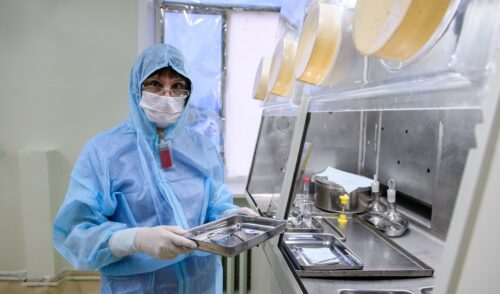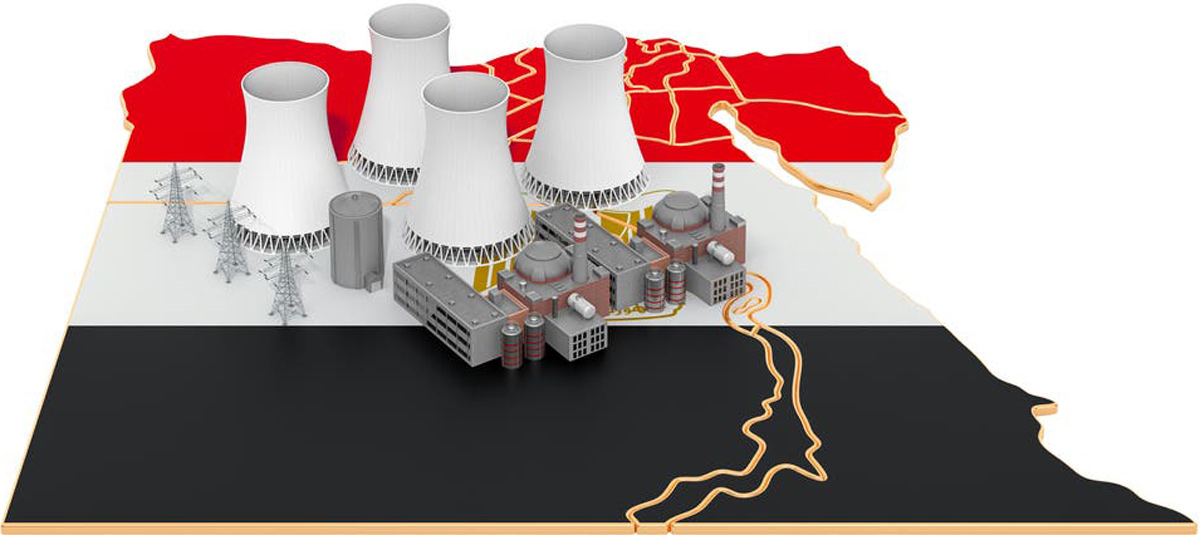
Atoms Go East
back to contentsNuclear energy is a major energy trend worldwide, and increasingly more MENA countries embark on it. During Rosatom’s Week at EXPO 2020 in Dubai, leading global experts spoke about the benefits of nuclear for the region.
In mid-January, Dubai hosted Rosatom’s Week as part of EXPO 2020. It was unprecedented in terms of its scale: representatives of the Russian nuclear corporation took part in 18 events joined together under the umbrella of advanced technology in achieving sustainable future and responding to the toughest challenges of today. Discussions at the events were dedicated to small modular reactors, Rosatom’s solutions in new materials, wind power, digitalization and others, and opportunities for cooperation in these areas. More details can be found in our article EXPO 2020: Week of Success.
Top managers of Rosatom and their colleagues from the UAE, Egypt and Turkey talked about the development of nuclear energy in the Middle East and North Africa.
Speaking at the NPP Construction in the MENA Region: Prospects of Cooperation session, Rosatom’s Vice President and Director at Rosatom Middle East and North Africa Alexander Voronkov drew the audience’s attention to the reasons for growing interest in nuclear energy. He noted that the energy sector showed two leading trends: high volatility of energy prices and demand for low-carbon energy sources. In particular, data shows a steady growth of energy demand, which slowed down for the sole reason of the pandemic but never really stopped. “Since 1990, energy consumption has increased more than 5 times in Turkey and doubled around the globe. However, we all understand that we need not just energy but clean and reliable low-carbon energy that will boost national economic recovery in the post-pandemic world. People demand the energy industry to provide universal access to electricity and at the same time to decarbonise that electricity. Unfortunately for our planet, the rising demand for electricity comes amid the rise in CO2 emissions,” Alexander Voronkov pointed out.
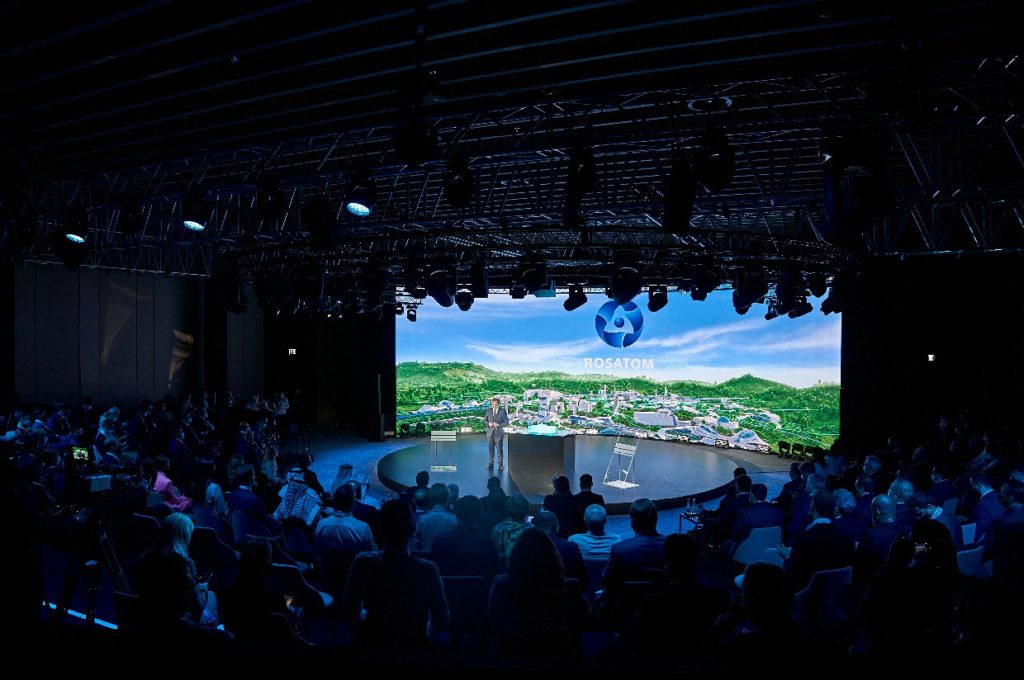
Another trend, he said, is that energy markets become more and more volatile. This winter energy costs in Germany are headed for the highest levels in at least two decades due to gas prices fluctuations amid ongoing concerns about the winter supply crunch. German energy futures for the fourth quarter of 2021 were trading above 100 euros per megawatt-hour, twice the rate of the last year and almost 50 % more than the highest historical average daily price for the period dating back to 2000. Another example is the sudden slowdown in wind-driven electricity production off the UK coast in September that caused dramatic fluctuations on regional energy markets. At their peak, the UK electricity prices had more than doubled in September and were almost seven times higher compared to the same period in 2020. Being highly interconnected, energy market prices also jumped in France, the Netherlands and Germany. Gas and coal-fired electricity plants were called in to make up the shortfall from wind.
“These examples show clearly that market volatility can lead to dramatic consequences for consumers and seriously affects energy security. Therefore, one of the most important goals of the national energy policy is to form a diversified energy mix with a variety of low-carbon sources. An energy system that is based on a combination of clean energy sources with nuclear energy providing base load electricity allows us to meet this demand,” Alexander Voronkov added.
According to him, the countries of the Middle East are today in the forefront of nuclear industry development. “It is clear that the Middle Eastern countries are realizing the need for the introduction of nuclear energy. But it is impossible for the local countries to carry out such projects without a reliable technology partner. An ideal partner who will join hands with the local countries or the country’s region should be innovative, have sufficient resources and capabilities, and experience in delivering such projects. And, of course, it should be socially responsible.“ He stressed that Rosatom met all those criteria. “Rosatom is the only nuclear company that is present in every link of the nuclear energy value chain, from mining and enrichment of uranium, fuel fabrication and production of equipment for nuclear power plants to their construction, operation and decommissioning,” Voronkov said.
Two large nuclear power plants constructed in the region were in the focus of attention during the round-table discussion. “Rosatom supervises two key projects in the MENA region, Akkuyu NPP in Turkey and El Dabaa NPP in Egypt, and the both are four-unit plants based on the VVER‑1200 reactor technology. Our personal involvement and dedication to ‘being global locally’ manifest themselves in every activity we do — business development, marketing and public relations. No need to say the Akkuyu and El Dabaa projects are of great significance for economic growth and development, lifestyle advancement, and environment protection,” Alexander Voronkov added.
Andrey Chubarov, Deputy Project Director for Contracting and Claim Management at El Dabaa, spoke about the progress in El Dabaa project. He reminded that El Dabaa was Egypt’s first nuclear power plant but not the first nuclear facility and that the history of nuclear cooperation between Russia and Egypt dated back more than 60 years. “It is the largest Russian-Egyptian construction project since the Aswan Dam, and we sometimes call it Aswan Dam‑2 not only in terms of its scale and size, but also in terms of how deep we go in our cooperation — economically, technologically and also culturally,” Andrey Chubarov pointed out.
Public acceptance of nuclear energy was another key topic discussed at Rosatom’s Week. During the session entitled ‘Public Demand for Nuclear Energy: How Nuclear Technologies Improve Our Lives’, the pool of experts, including Sama Bilbao-y-Leon, Director General of the World Nuclear Association, and representatives of the IAEA, International Youth Nuclear Association, African Young Generation in Nuclear, Africa4Nuclear, Mothers for Nuclear and other organizations, spoke about global communication approaches to raising awareness of nuclear technology and challenges to be overcome. WNA Director General Sama Bilbao-y-Leon said that access to reliable and clean electricity played an important role in strengthening public health both directly and indirectly. “It goes beyond medical facilities; it includes protecting children’s lives, providing safe drinking water and food security,” she said. The participants of the session discussed several initiatives, such as Atoms Empowering Africa video contest, Atoms for Humanity, and Rhisotope. They help explain the benefits of nuclear and also illustrate nuclear technologies in action.
According to Alexander Voronkov, transparency and open dialog are the beacons of effective communication in the nuclear sector. “They ensure that correct information about sensitive topics is delivered and that common myths and stereotypes about nuclear energy are debunked. Moreover, they help win public trust,” Voronkov stressed.


